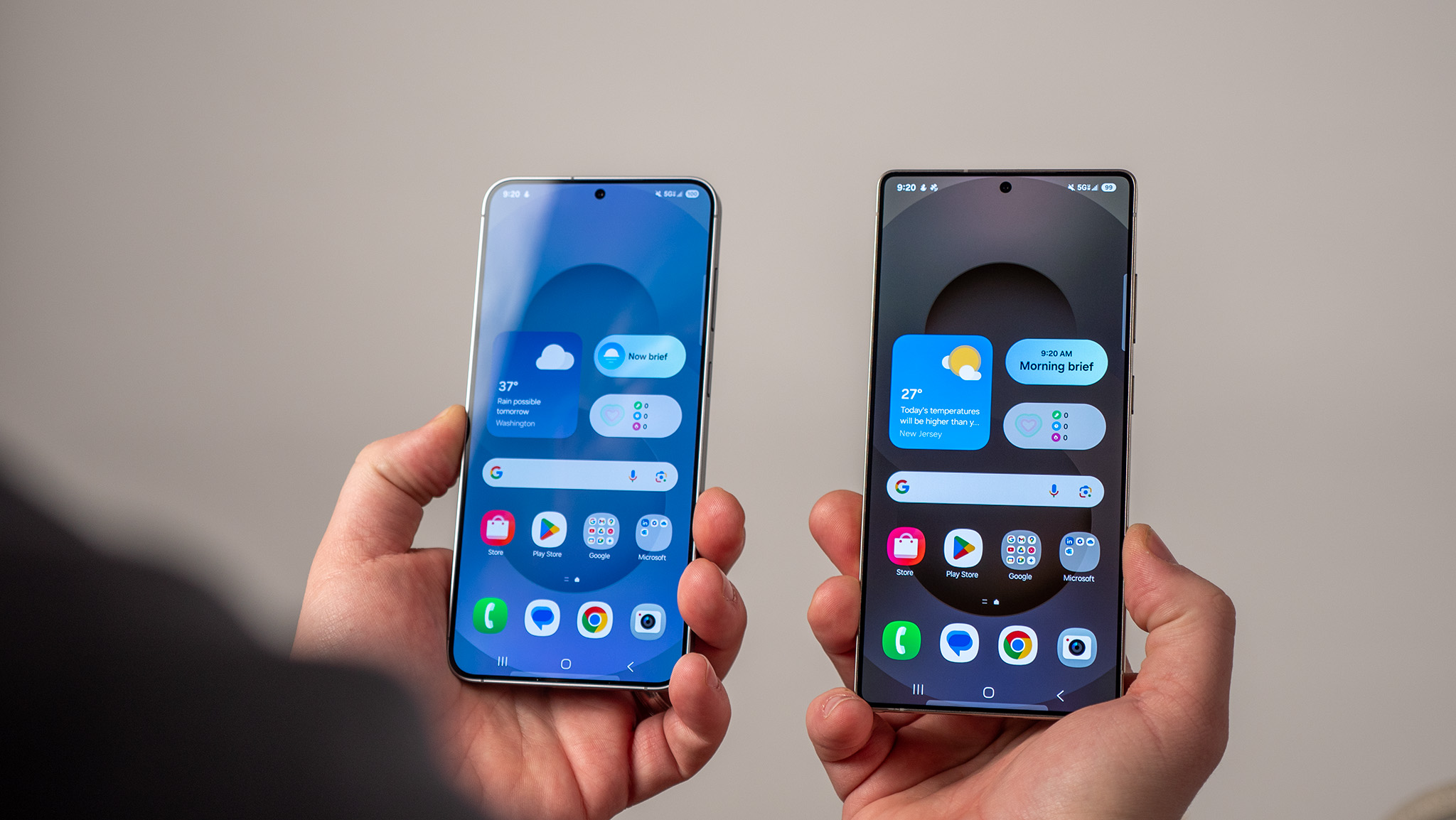Qualcomm comes after Google's AI crown with the new Snapdragon 8 Gen 3
Built with a focus on generative AI.
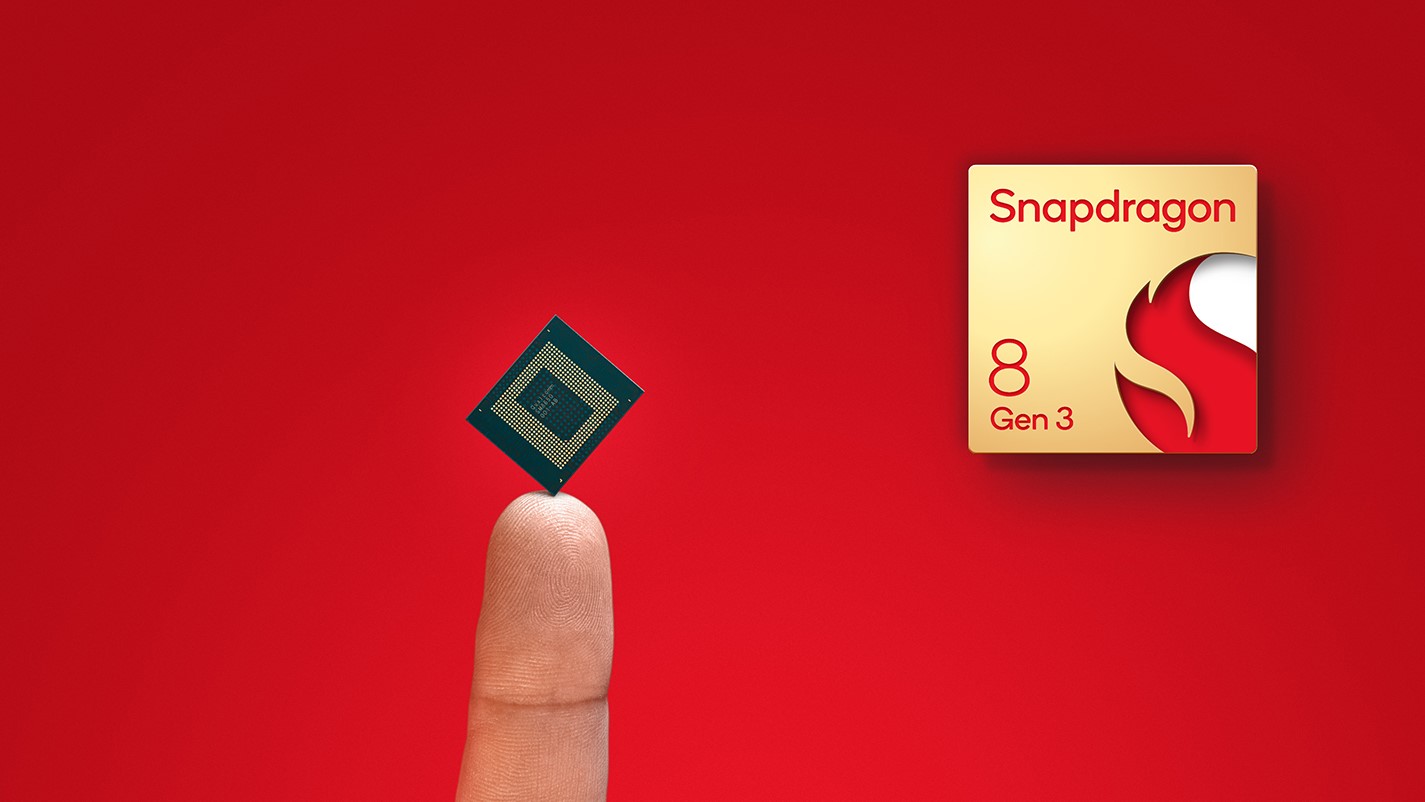
What you need to know
- Qualcomm announces its latest flagship mobile platform, the snapdragon 8 Gen 3.
- The chipset aims to enable new AI capabilities on mobile devices, particularly when it comes to images and video.
- The Snapdragon 8 Gen 3 has a 30% faster CPU performance with 20% and 25% better efficiency across the CPU and GPU, respectively.
- The first Snapdragon 8 Gen 3 phones will be available in the coming weeks.
Qualcomm is getting ready to kick off this new era of generative AI, and it all starts with the latest Snapdragon 8 Gen 3, which is set to arrive on flagship Android phones soon. The company announced the device at its annual Snapdragon Summit, showing off the various capabilities the chip can bring to upcoming smartphones, and it's clear the company is going after Google, even if it didn't explicitly say so.
Regarding power, the new 4nm chip is configured with two low-power cores, five performance cores, and a single prime Cortex-X4 core clocked at 3.3GHz, which Qualcomm says provides 30% more performance and 20% better efficiency. The new GPU also promises 25% better performance and efficiency, with a 10% overall power savings.
It's difficult to say how that translates in real-world use, but hopefully, it means less time on the charger and more time doing the things you love on your phone.
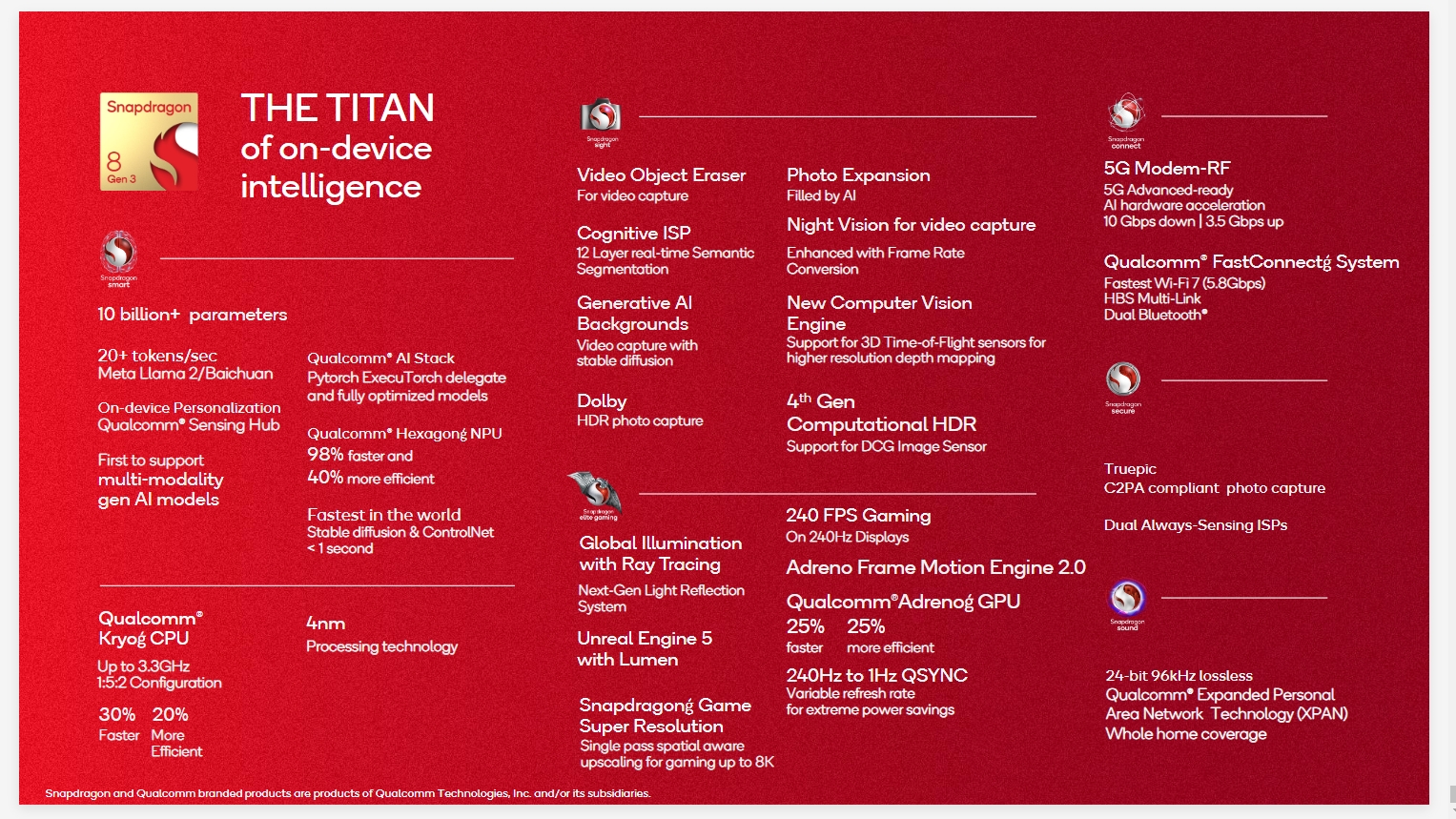
But with all that power comes plenty of new capabilities, and Qualcomm is leaning hard on the generative AI craze. The company highlights various ways the chip can apply powerful new features with its neural processing unit (NPU) and support for multi-modal generative AI models in its upgraded AI Engine. The company showed off an AI assistant powered by Meta's Llama 2 and an on-device Sensing Hub that securely taps into the device sensors to provide personalized responses.
Snapdragon 8 Gen 3 smartphones will be capable of features like photo expansion, allowing the phone to use generative AI to expand a photo beyond the original image by intelligently filling in the rest, similar to what you see on Adobe Photoshop. Additionally, Vlogger's View lets users shoot with both front and rear cameras, and the phone will overlap them over the video, similar to what you see on apps like TikTok, but with fewer steps.
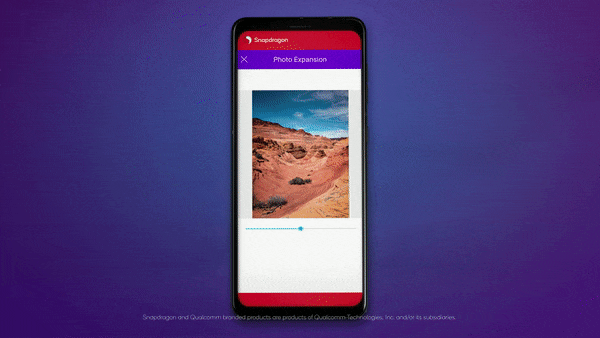
You may be familiar with Google's Magic Eraser, a feature that can remove subjects from images, and Qualcomm is taking things a step further, showing off a new Video Object Eraser tool by Arcsoft that can erase entire people from a video. Smartphones will also be capable of fast text-to-image generation using Stable Diffusion, which Qualcomm says can happen in "a fraction of a second."
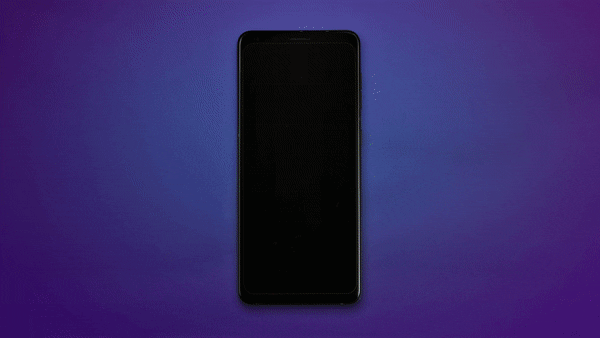
Imaging also gets a boost with Qualcomm's upgraded ISP that can individually optimize up to 12 layers of a single photo, from the sky to your skin. Qualcomm also taps into Dolby for 10-bit HDR photo capture/playback and Samsung's 200MP image sensor for Zoom Anyplace, which enables object tracking and 4x zoom in 4K.
Be an expert in 5 minutes
Get the latest news from Android Central, your trusted companion in the world of Android
But beyond AI, the new Snapdragon 8 Gen 3 comes with the new X75 5G modem, support for Wi-Fi 7, and is built on a 64-bit architecture. And that powerful new GPU promises to enable impressive "console-defying" gaming with support for better Ray Tracing with global illumination powered by Unreal Engine. Whether or not this will match up to the new iPhone 15's console-level gaming remains to be seen, but it's exciting nonetheless.

Tensor may be the perfect chip fit for a Pixel, but Qualcomm is making an AI chip fit for every other Android smartphone, and it'll be exciting to see how companies take advantage of it.
Qualcomm says we can expect the first phones powered by the Snapdragon 8 Gen 3 "in the coming weeks." The company lists OEMs such as ASUS, Honor, iQOO, Meizu, Nio, Nubia, OnePlus, OPPO, Realme, Redmi, RedMagic, Sony, Vivo, Xiaomi, and ZTE. Of course, we also expect Samsung to sport the new chip when it launches the Galaxy S24 next year.

Derrek is the managing editor of Android Central, helping to guide the site's editorial content and direction to reach and resonate with readers, old and new, who are just as passionate about tech as we are. He's been obsessed with mobile technology since he was 12, when he discovered the Nokia N90, and his love of flip phones and new form factors continues to this day. As a fitness enthusiast, he has always been curious about the intersection of tech and fitness. When he's not working, he's probably working out.
-
Technerd71 Good for Qualcomm. We need competition to drive more innovation. Just because Qualcomm is taking AI seriously and doing better in a yet to be released chip doesn't mean that they are taking Google's crown. No other phone can do what a Pixel does and that is due to the custom Tensor G3 and it's TPU. A lot of AI features need to be leveraged by software to take advantage of them. So even if the chip is terrific with AI, unless Samsung, Xiaomi, Motorola, and other OEMS can create software to take advantage of the advanced AI it is a bit of a mute point.Reply
Google is so far ahead of everyone else in the software they already have and are using that it isn't even close. For example, Samsung Galaxy s23 series phones have call screening through Bixby and it is not even close to as good as call screening in a Pixel. Then there is the camera system which Google leverages AI better than anyone else.
So it is great Qualcomm is getting some serious AI chops but it will take some time before the OEMs are able to really take advantage of it and then their implementation might not be as good.
